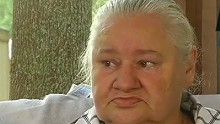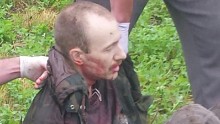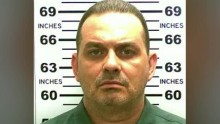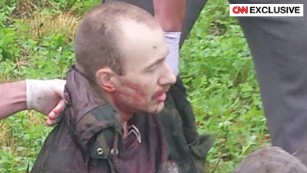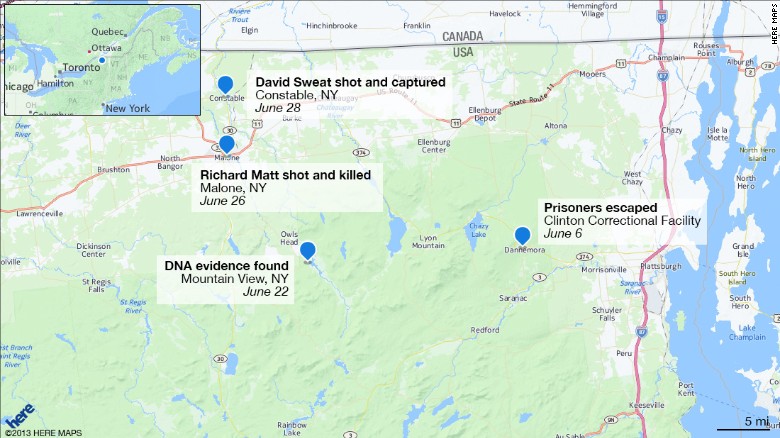Let me come right our and say what you won’t tell
the American people. The War on Drugs is unwinnable.
It was unwinnable for Nixon, Ford, Carter, Reagan,
Bush, Clinton, Bush, and now Obama. At forty-four years,
it’s America’s longest war and there’s no end in sight.
the American people. The War on Drugs is unwinnable.
It was unwinnable for Nixon, Ford, Carter, Reagan,
Bush, Clinton, Bush, and now Obama. At forty-four years,
it’s America’s longest war and there’s no end in sight.
The people who benefit most from the War on Drugs are the traffickers. Every dollar we spend on drugs and every dollar we spend trying to interdict them raises the profits of the Mexican cartels and makes them more powerful.
So in the very act of fighting this war, we lose it.
Cops standing in front of big drug seizures look great on the evening news. But it sells a lie that we’re winning, just like George Bush on an aircraft carrier declaring that a war was over that still rages on today.
It’s not only that we can’t win this war, it’s that we’re destroying ourselves fighting it. We are literally addicted to the War on Drugs. A half-century of failed policy, $1 trillion, and 45 million arrests has not reduced daily drug use—at all. The U.S. still leads the world in illegal drug consumption, drugs are cheaper, more available, and more potent than ever before.
Our justice system is a junkie, demanding its daily fix of arrests, seizures and convictions. It needs drugs. It’s as hooked as that guy sticking a needle into his arm even though he knows it’s killing him.
Towns that used to compete for factories now campaign for penitentiaries because caging our citizens has become big business. Prison privatization—corrections as capitalism—has increased 1600 percent between 1990 and 2010.
More African-American men are in prison or in the “system” today than there were slaves in 1850. And you don’t just throw an individual behind bars, you throw his or her whole family. Almost 3 million kids have a parent in jail on a drug charge, and they’re more likely to be on welfare, drop out of school, go out on the corner and sell drugs to start the whole tragic cycle all over again. Drugs begin the destruction of families and the justice system finishes them off.
Throughout its history, the War on Drugs has disproportionally impacted minorities—it is a war on people, specifically communities of color. “Right now we have the worst of both worlds. In vast blocks of cities, the only incomes come from the government or from drugs.” That was Bill Clinton in 1992, and 23 years later nothing has changed.
The Cato Institute estimates that legalizing all drugs would save the country $41 billion a year. Taxing drugs at the same rate that we tax alcohol and tobacco... would yield $46 billion in tax revenues.
Police departments have become occupying armies. We can draw a direct line between the War on Drugs and the recent events in Ferguson, Cleveland, Baltimore, and elsewhere.
The militarization of our police departments began with the reaction to the crack epidemic of the 1980s. Heavily armed SWAT teams battering down doors in the middle of the night, arresting thousands of young men, have turned American neighborhoods into war zones and spawned a hostile and deadly relationship with our inner-city communities.
Proof that this militarization isn’t working is its escalation: In 1972 there were a few hundred paramilitary drug raids; 1980 saw 3,000; 2001 had 40,000; and last year that doubled to 80,000. Of course, if the raids were working, there’d be fewer of them, not more.
Proof that this militarization isn’t working is its escalation: In 1972 there were a few hundred paramilitary drug raids; 1980 saw 3,000; 2001 had 40,000; and last year that doubled to 80,000. Of course, if the raids were working, there’d be fewer of them, not more.
The War on Drugs isn’t just a failure, it’s a disaster.
U.S. drug policy works great—for the Mexican cartels.
Your votes have consequences: In 1994 you voted in NAFTA, the North American Free Trade Agreement, which DEA agents on the front line call the North American Free Drug Trade Agreement. So while you were passing severe laws against drug possession at home, you were enabling thousands of trailer trucks of dope to come across the border and flood our cities.
U.S. drug policy works great—for the Mexican cartels.
Your votes have consequences: In 1994 you voted in NAFTA, the North American Free Trade Agreement, which DEA agents on the front line call the North American Free Drug Trade Agreement. So while you were passing severe laws against drug possession at home, you were enabling thousands of trailer trucks of dope to come across the border and flood our cities.
Our drug policy toward Mexico has been so bad that former President Clinton apologized to the Mexican people in February of this year, saying, “I wish you had no narco-trafficking, but it’s not really your fault. Basically, we did too good of a job taking the transportation out of the air and water, and so we ran it over land. I apologize for that.”
It’s not the “Mexican Drug Problem.” It’s the American Drug Problem. It’s simple: No buyer, no seller. We fund the killing, fuel the killing, and sustain the killing. As a result, 100,000 people in Mexico are dead just since 2006.
You’re so concerned about terrorists thousands of miles away that you don’t see the terrorists just across our border. The cartels are more sophisticated and wealthier than the jihadists and already have a presence in 230 American cities. The cartels were running the ISIS playbook—decapitations, immolations, videos, social media—ten years ago.
Many of you keep talking about building a wall that stretches the entire 2,000-mile land border with Mexico. It doesn’t matter how high a wall you build if the traffickers can tunnel under it. You’ve read about these tunnels, with railroad tracks, air-conditioning, elevators, and dormitories. Now drug traffickers use them, but how long will it be before terrorists figure out that this is a way to get into our country? Those tunnels only exist because drugs are illegal. Your “tough on crime” stance makes us soft on security.
We never learn.
Since 2005, Congress has spent $2.5 billion on the Merida Initiative, providing weapons, helicopters, fixed-wing aircraft, surveillance technology, and especially training to Mexican counter-drug agencies. But DEA agents in the field regularly report that these agencies have criminal connections to the cartels, even serving as their armed forces, and have been involved in the massacres of innocent civilians. We are funding our own drug epidemic.
Our Mexico strategy is such a complete failure that during Operation Fast and Furious, the ATF violated the very federal laws it was created to enforce, facilitating arms smuggling to drug traffickers in an effort to trace them. The ATF lost track of the automatic rifles that were then used to murder Border Patrol Agent Brian Terry. Mexican ambassador to the U.S. Arturo Sarukhan said, “The thinking that you can let guns walk across the border and maintain operational control of those weapons is really an outstanding lack of understanding of how these criminal organizations are operating on both sides of our common borders.”
In Afghanistan, Congress authorized $108 million to “incentivize” provinces to reduce poppy cultivation. Instead, they built irrigation systems to water the poppies. So far, you’ve spent $7.6 billion to fight the drug war in Afghanistan, and opium production there has tripled.
We should be using our resources to fix our crumbling schools, create jobs, and fund drug treatment. Because interdiction increases supply while education reduces demand.
Education is cheaper than incarceration. Keeping someone in a classroom costs one quarter of what it costs to keep him in a cell. But, thanks to the War on Drugs, America is home to the largest prison population in the history of the planet.
You know how we got to this point.
At the height of the drug war hysteria, and desperate to appear tough on crime, Congress overreacted and passed insanely over-the-top laws forcing judges to put nonviolent drug offenders into prison for mandatory terms of 15 years to life.
The prison population exploded. Now we have 5 percent of the world’s people but 25 percent of the world’s convicts. That’s 2.3 million Americans behind bars, half of them on drug-related offenses.
Eric Sterling, a lawyer and one of the architects of the 1986 federal sentencing laws, later wrote that they were a terrible mistake, “among the most reviled Acts of Congress in recent years.” U.S. District Judge Mark Bennett says that he feels guilt and sorrow when he has to sentence nonviolent drug offenders to long mandatory terms and tells them, “My hands are tied…I’m sorry. This isn’t up to me.”
We cannot incarcerate our way out of this problem.
We’ve failed. And both sides of the aisle agree: President Obama, April 2015: “I am a very strong believer that the path that we have taken in the United States in the so-called ‘war on drugs’ has been so heavy in emphasizing incarceration that it has been counterproductive.” Governor Chris Christie, June 7, 2015: “I think quite frankly the war on drugs has been a failure.”
Three-quarters of American voters today agree with them.
In a May 2014 drug raid with a “no-knock” warrant, a Georgia SWAT team threw a flash bang grenade into a baby’s playpen. That 1-year-old child, Bounkham Phonesavanh, suffered critical burns. David Simon has said, “Probable cause was destroyed by the drug war.” We torched our civil rights, and now we burn babies along with them.
That’s not who we are. At least that’s not who we should be.
The Cato Institute estimates that legalizing all drugs would save the country $41 billion a year. Taxing drugs at the same rate that we tax alcohol and tobacco (by far the biggest killers among drugs), would yield $46 billion in tax revenues.
With that kind of money, you could shrink the deficit, grow the economy, create businesses in inner cities, provide treatment for addicts—things that might actually do something about the drug problem.
Appearing tough on crime is not the same as being tough on crime. Being tough on crime means making some hard decisions.
We need to stop thinking about how to fight this war better, but how not to fight it at all.
We need leadership and legislation. We need Congress to have the courage to step up and say not that the system is broken and in need of repair, but that in 1971 we made a colossal trillion-dollar mistake that has destroyed this country, and it has to stop.
How much more money do we have to waste, how many more families have to be destroyed, how many more people have to be killed before you summon the courage to tell the truth to the American people?
The War on Drugs is not only futile, it is wrong.
The answer is legalization.
The only way to win is to stop fighting.
Don Winslow is the bestselling author of Savages, which he adapted into a feature film directed by Oliver Stone. His new novel about the War on Drugs,The Cartel, is now available.
Let me come right our and say what you won’t tell
the American people. The War on Drugs is unwinnable.
It was unwinnable for Nixon, Ford, Carter, Reagan,
Bush, Clinton, Bush, and now Obama. At forty-four years,
it’s America’s longest war and there’s no end in sight.
the American people. The War on Drugs is unwinnable.
It was unwinnable for Nixon, Ford, Carter, Reagan,
Bush, Clinton, Bush, and now Obama. At forty-four years,
it’s America’s longest war and there’s no end in sight.
The people who benefit most from the War on Drugs are the traffickers. Every dollar we spend on drugs and every dollar we spend trying to interdict them raises the profits of the Mexican cartels and makes them more powerful.
So in the very act of fighting this war, we lose it.
Cops standing in front of big drug seizures look great on the evening news. But it sells a lie that we’re winning, just like George Bush on an aircraft carrier declaring that a war was over that still rages on today.
It’s not only that we can’t win this war, it’s that we’re destroying ourselves fighting it. We are literally addicted to the War on Drugs. A half-century of failed policy, $1 trillion, and 45 million arrests has not reduced daily drug use—at all. The U.S. still leads the world in illegal drug consumption, drugs are cheaper, more available, and more potent than ever before.
Our justice system is a junkie, demanding its daily fix of arrests, seizures and convictions. It needs drugs. It’s as hooked as that guy sticking a needle into his arm even though he knows it’s killing him.
Towns that used to compete for factories now campaign for penitentiaries because caging our citizens has become big business. Prison privatization—corrections as capitalism—has increased 1600 percent between 1990 and 2010.
More African-American men are in prison or in the “system” today than there were slaves in 1850. And you don’t just throw an individual behind bars, you throw his or her whole family. Almost 3 million kids have a parent in jail on a drug charge, and they’re more likely to be on welfare, drop out of school, go out on the corner and sell drugs to start the whole tragic cycle all over again. Drugs begin the destruction of families and the justice system finishes them off.
Throughout its history, the War on Drugs has disproportionally impacted minorities—it is a war on people, specifically communities of color. “Right now we have the worst of both worlds. In vast blocks of cities, the only incomes come from the government or from drugs.” That was Bill Clinton in 1992, and 23 years later nothing has changed.
The Cato Institute estimates that legalizing all drugs would save the country $41 billion a year. Taxing drugs at the same rate that we tax alcohol and tobacco... would yield $46 billion in tax revenues.
Police departments have become occupying armies. We can draw a direct line between the War on Drugs and the recent events in Ferguson, Cleveland, Baltimore, and elsewhere.
The militarization of our police departments began with the reaction to the crack epidemic of the 1980s. Heavily armed SWAT teams battering down doors in the middle of the night, arresting thousands of young men, have turned American neighborhoods into war zones and spawned a hostile and deadly relationship with our inner-city communities.
Proof that this militarization isn’t working is its escalation: In 1972 there were a few hundred paramilitary drug raids; 1980 saw 3,000; 2001 had 40,000; and last year that doubled to 80,000. Of course, if the raids were working, there’d be fewer of them, not more.
Proof that this militarization isn’t working is its escalation: In 1972 there were a few hundred paramilitary drug raids; 1980 saw 3,000; 2001 had 40,000; and last year that doubled to 80,000. Of course, if the raids were working, there’d be fewer of them, not more.
The War on Drugs isn’t just a failure, it’s a disaster.
U.S. drug policy works great—for the Mexican cartels.
Your votes have consequences: In 1994 you voted in NAFTA, the North American Free Trade Agreement, which DEA agents on the front line call the North American Free Drug Trade Agreement. So while you were passing severe laws against drug possession at home, you were enabling thousands of trailer trucks of dope to come across the border and flood our cities.
U.S. drug policy works great—for the Mexican cartels.
Your votes have consequences: In 1994 you voted in NAFTA, the North American Free Trade Agreement, which DEA agents on the front line call the North American Free Drug Trade Agreement. So while you were passing severe laws against drug possession at home, you were enabling thousands of trailer trucks of dope to come across the border and flood our cities.
Our drug policy toward Mexico has been so bad that former President Clinton apologized to the Mexican people in February of this year, saying, “I wish you had no narco-trafficking, but it’s not really your fault. Basically, we did too good of a job taking the transportation out of the air and water, and so we ran it over land. I apologize for that.”
It’s not the “Mexican Drug Problem.” It’s the American Drug Problem. It’s simple: No buyer, no seller. We fund the killing, fuel the killing, and sustain the killing. As a result, 100,000 people in Mexico are dead just since 2006.
You’re so concerned about terrorists thousands of miles away that you don’t see the terrorists just across our border. The cartels are more sophisticated and wealthier than the jihadists and already have a presence in 230 American cities. The cartels were running the ISIS playbook—decapitations, immolations, videos, social media—ten years ago.
Many of you keep talking about building a wall that stretches the entire 2,000-mile land border with Mexico. It doesn’t matter how high a wall you build if the traffickers can tunnel under it. You’ve read about these tunnels, with railroad tracks, air-conditioning, elevators, and dormitories. Now drug traffickers use them, but how long will it be before terrorists figure out that this is a way to get into our country? Those tunnels only exist because drugs are illegal. Your “tough on crime” stance makes us soft on security.
We never learn.
Since 2005, Congress has spent $2.5 billion on the Merida Initiative, providing weapons, helicopters, fixed-wing aircraft, surveillance technology, and especially training to Mexican counter-drug agencies. But DEA agents in the field regularly report that these agencies have criminal connections to the cartels, even serving as their armed forces, and have been involved in the massacres of innocent civilians. We are funding our own drug epidemic.
Our Mexico strategy is such a complete failure that during Operation Fast and Furious, the ATF violated the very federal laws it was created to enforce, facilitating arms smuggling to drug traffickers in an effort to trace them. The ATF lost track of the automatic rifles that were then used to murder Border Patrol Agent Brian Terry. Mexican ambassador to the U.S. Arturo Sarukhan said, “The thinking that you can let guns walk across the border and maintain operational control of those weapons is really an outstanding lack of understanding of how these criminal organizations are operating on both sides of our common borders.”
In Afghanistan, Congress authorized $108 million to “incentivize” provinces to reduce poppy cultivation. Instead, they built irrigation systems to water the poppies. So far, you’ve spent $7.6 billion to fight the drug war in Afghanistan, and opium production there has tripled.
We should be using our resources to fix our crumbling schools, create jobs, and fund drug treatment. Because interdiction increases supply while education reduces demand.
Education is cheaper than incarceration. Keeping someone in a classroom costs one quarter of what it costs to keep him in a cell. But, thanks to the War on Drugs, America is home to the largest prison population in the history of the planet.
You know how we got to this point.
At the height of the drug war hysteria, and desperate to appear tough on crime, Congress overreacted and passed insanely over-the-top laws forcing judges to put nonviolent drug offenders into prison for mandatory terms of 15 years to life.
The prison population exploded. Now we have 5 percent of the world’s people but 25 percent of the world’s convicts. That’s 2.3 million Americans behind bars, half of them on drug-related offenses.
Eric Sterling, a lawyer and one of the architects of the 1986 federal sentencing laws, later wrote that they were a terrible mistake, “among the most reviled Acts of Congress in recent years.” U.S. District Judge Mark Bennett says that he feels guilt and sorrow when he has to sentence nonviolent drug offenders to long mandatory terms and tells them, “My hands are tied…I’m sorry. This isn’t up to me.”
We cannot incarcerate our way out of this problem.
We’ve failed. And both sides of the aisle agree: President Obama, April 2015: “I am a very strong believer that the path that we have taken in the United States in the so-called ‘war on drugs’ has been so heavy in emphasizing incarceration that it has been counterproductive.” Governor Chris Christie, June 7, 2015: “I think quite frankly the war on drugs has been a failure.”
Three-quarters of American voters today agree with them.
In a May 2014 drug raid with a “no-knock” warrant, a Georgia SWAT team threw a flash bang grenade into a baby’s playpen. That 1-year-old child, Bounkham Phonesavanh, suffered critical burns. David Simon has said, “Probable cause was destroyed by the drug war.” We torched our civil rights, and now we burn babies along with them.
That’s not who we are. At least that’s not who we should be.
The Cato Institute estimates that legalizing all drugs would save the country $41 billion a year. Taxing drugs at the same rate that we tax alcohol and tobacco (by far the biggest killers among drugs), would yield $46 billion in tax revenues.
With that kind of money, you could shrink the deficit, grow the economy, create businesses in inner cities, provide treatment for addicts—things that might actually do something about the drug problem.
Appearing tough on crime is not the same as being tough on crime. Being tough on crime means making some hard decisions.
We need to stop thinking about how to fight this war better, but how not to fight it at all.
We need leadership and legislation. We need Congress to have the courage to step up and say not that the system is broken and in need of repair, but that in 1971 we made a colossal trillion-dollar mistake that has destroyed this country, and it has to stop.
How much more money do we have to waste, how many more families have to be destroyed, how many more people have to be killed before you summon the courage to tell the truth to the American people?
The War on Drugs is not only futile, it is wrong.
The answer is legalization.
The only way to win is to stop fighting.
Don Winslow is the bestselling author of Savages, which he adapted into a feature film directed by Oliver Stone. His new novel about the War on Drugs,The Cartel, is now available.










